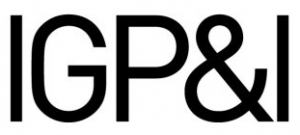
Buyers taking delivery of new tonnage need to know how to deal with any technical defects found in a new vessel shortly after taking delivery. Crew familiarisation is one issue, but what happens when a builder’s defect is discovered? Presenting warranty claims to the builder is not always simple, and this circular highlights some of the common difficulties which may be encountered.
Published 25 March 2015
BackgroundMany jurisdictions impose strict safety and quality obligations upon manufacturers. National regulations or legislation sets criteria for a product’s fitness for its intended use. However, it is common for commercial shipbuilding contracts to exclude all such duties on the part of the shipbuilder upon delivery of the vessel from the yard. The shipbuilder’s statutory duties are instead replaced by terms contained in a much more limited warranty and guarantee clause. Suppliers of equipment and other sub-contractors to the yard are also protected by these terms in the contract. The warranty offered is valid for only a limited time and any claim notified must follow the procedure agreed. The extent of the shipbuilder’s liability under the contract will be decided solely by the terms of the warranty clause. A buyer’s acceptance of a vessel upon delivery indicates that the vessel is technically in conformity with the shipbuilder’s obligations - to the extent the buyers could be aware of or discover any defects at the time of delivery.
In a recent Gard case a vessel broke down off South America whilst on a laden voyage shortly after delivery from a yard in Asia. General average was declared. The vessel was towed to a European port to discharge the cargo. The main engine was opened up, and it was discovered that the breakdown was caused by faulty machining of a part by a sub-contractor, prior to installation at the builder’s yard. There was no question of improper operation by the engine room crew. The buyer immediately notified the shipbuilders of the claim, and under pressure from the buyers and Gard, the builder agreed to supply replacement parts and pay compensation for the repair costs. Not every warranty claim is so simple to resolve.
Typical form of warranty wordingThe following is a typical form of warranty wording:
IX.1 Guarantee of Material and Workmanship
The Builder for a period of 12 months following acceptance by the Buyer of the vessel, guarantees the vessel her hull and machinery ... .which are manufactured, furnished or supplied by the Builder… against all defects in materials and/or workmanship on the part of the Builder ...
IX.3 Extent of the Builder’s liability
(a) The Builder shall have no obligation under this guarantee for any defect discovered after the expiration of the guarantee period ….. for any defects whatsoever. . .other than the defects specified in Section 1 of this Article. Nor shall the Builder in any circumstances be liable for any indirect consequential or special losses damages or expenses ....occasioned to the Buyer by reason of the defects specified
Shipbuilding contracts can also contain terms such as “The Guarantee provided in this Article and the liabilities of the [Builder] are in lieu of all other warranties and the Buyer waives all other remedies…”.
Courts have held that such terms protect the shipbuilder from the usual statutory obligations of a manufacturer.
Warranty issuesCommon warranty issues encountered by owners in shipbuilding disputes include:
The yard insists the vessel is returned to the builder’s premises for repairs, or an offer is made to compensate the buyer for the defect at “cost”.
The yard may argue the defect occurred after delivery without their fault, often asserting there was improper handling by the crew or that the engine had been incorrectly maintained.
The claims are rejected as falling outside the scope of the warranty, or are not a builder’s defect which falls under the category of items guaranteed to be rectified.
It is often said the buyer agreed by his actions not to pursue genuine warranty claims any further.
Works undertaken during the pre-delivery phase may have been approved by class or the buyer’s superintendent.
Rejection of any claims for ‘indirect’ damage caused to other items of the vessel’s machinery by a defective part, or loss of use or loss of earnings claims.
Requests by the yard that the buyer waives any and all vessel damage claims during the period the vessel is undergoing warranty repairs, or the yard places limits on its own repairers’ insurance cover.
Recommendations and checklistsAny defects arising during the first 12 months of operation after leaving the yard must be notified to the builder in strict compliance with the terms of the warranty, not least as this can have an impact upon the vessel’s hull insurance and other covers leaving a buyer exposed to irrecoverable losses. Some insurance terms state that where the buyer has failed to give timely notice of a claim under the warranty and so loses his right to claim, his insurance cover will be invalidated. This is because such failure to give timely notice of a claim prejudices an insurer’s rights of recovery from the builder.
When notifying Gard of shipbuilding warranty claims, Members and clients should ensure they follow a basic checklist of actions and can document the following:
The warranty claim has been notified to the yard within the time agreed in the contract.
The notification procedures laid down in the shipbuilding contract have been followed. For example, the contract may specify that notice of claim must be sent by registered post or by fax – not email – to a named representative of the shipbuilder.
You have evidence of any breach of the shipbuilder’s duties to properly perform the construction of the vessel in accordance with the terms of the contract and the specifications. This can include reports from owners’ attending representatives during the newbuilding phase.
The shipbuilder’s obligation to remedy the defect falls within the terms of the warranty clause. Please note that some indirect damage and consequential losses are excluded.
The shipbuilders have been notified of the claim and invited to send a representative to the vessel to assess the extent of the repairs necessary, and for the shipbuilder to approve the repair yard if different from the shipbuilder’s yard.
Any warranty repairs notified and rectified by the shipbuilder are not completed and “closed out” until a survey or assessment has been carried out that confirms that this is the case. Some warranties are extended for very a short time.





